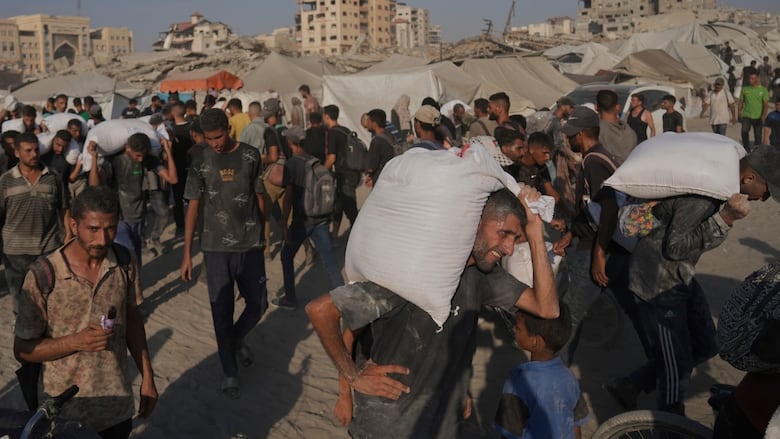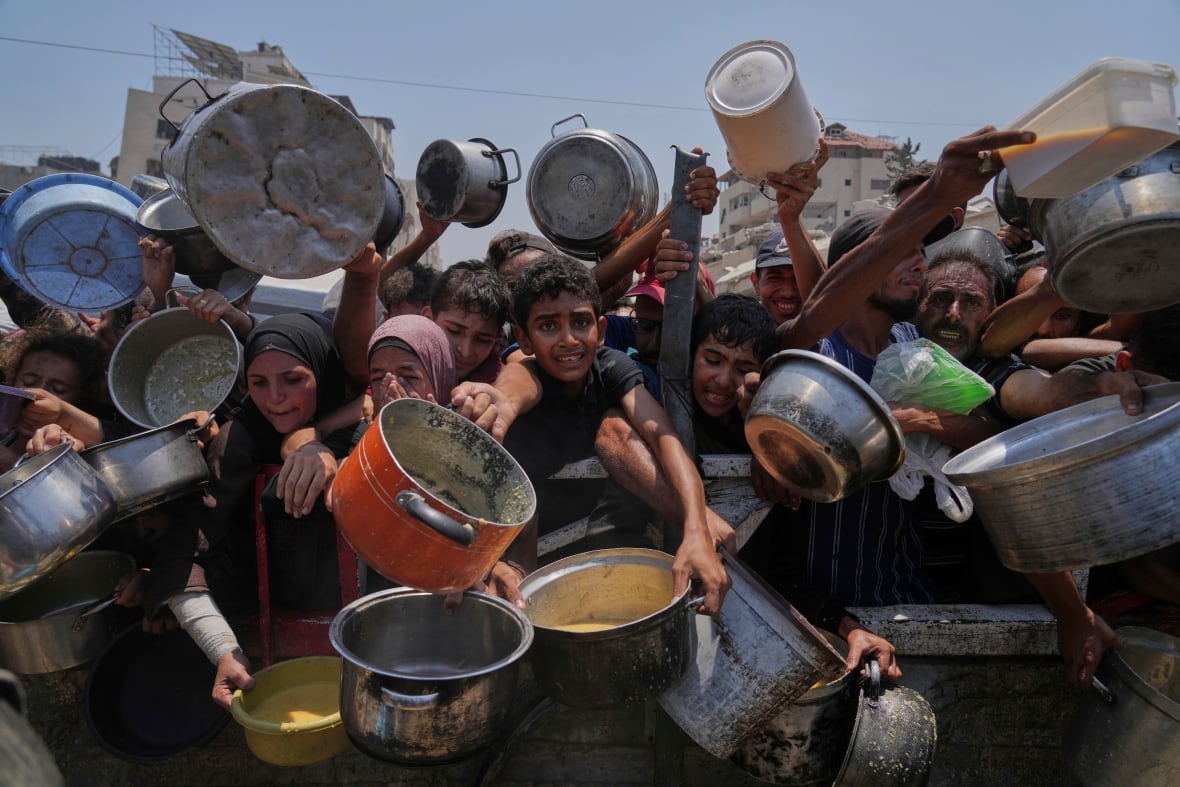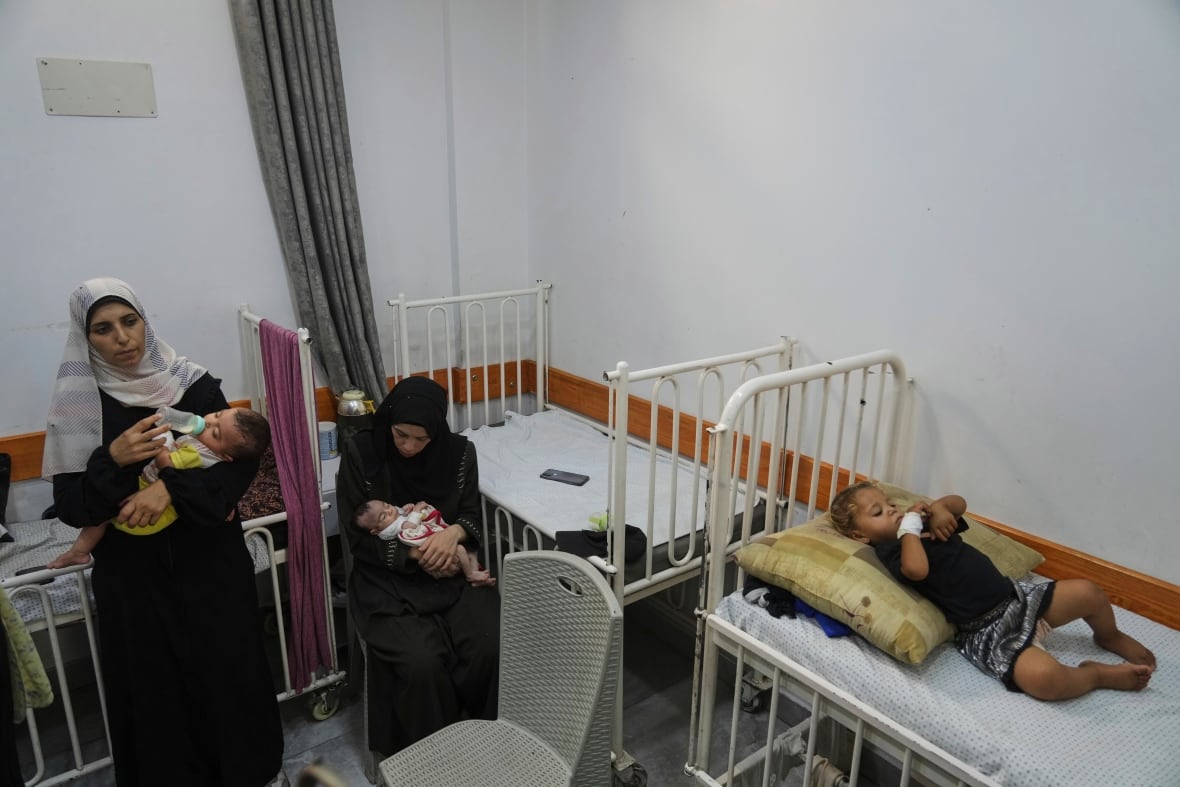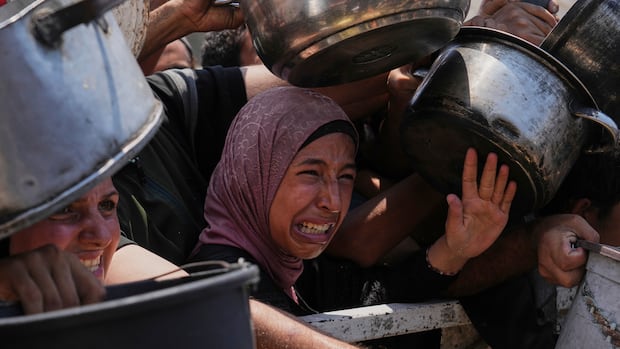Israel begins limited pause in fighting as criticism mounts over hunger in Gaza
Israeli military says it will put secure routes in place to 'increase the scale of humanitarian aid'

The Israeli military on Sunday began a limited pause in fighting in three populated areas of Gaza for 10 hours a day, part of a series of steps launched as concerns over surging hunger in the territory mount and as Israel faces a wave of international criticism over its conduct in the 21-month war.
The military said it would begin a "tactical pause" in Gaza City, Deir al-Balah and Muwasi, three areas of the territory with large populations, to "increase the scale of humanitarian aid" entering the territory.
The pause begins every day at 10 a.m. to 8 p.m. local time until further notice.
The military also said that it would put in place secure routes for aid delivery and that it carried out aid airdrops into Gaza, which included packages of aid with flour, sugar and canned food.
Food experts have warned for months of the risk of famine in Gaza, where Israel has restricted aid because it says Hamas siphons off goods to help bolster its rule, without providing evidence for that claim. Images emerging from Gaza in recent days of emaciated children have fanned global criticism of Israel, including by close allies, who have called for an end to the war and the humanitarian catastrophe it has spawned.
Israel said the new measures were taking place while it continues its offensive against Hamas in other areas. Ahead of the pause, health officials in Gaza said at least 16 Palestinians were killed in separate strikes.
"This [humanitarian] truce will mean nothing if it doesn't turn into a real opportunity to save lives," said Dr. Muneer al-Boursh, director general of Gaza's Health Ministry, who called for a flood of medical supplies and other goods to help treat child malnutrition.
"Every delay is measured by another funeral."

The local pause in fighting came days after ceasefire efforts between Israel and Hamas appeared to be in doubt. On Friday, Israel and the U.S. recalled their negotiating teams, blaming Hamas, and Israel said it was considering "alternative options" to ceasefire talks with the militant group.
Under international pressure, Israel slightly eased the blockade in May. Since then, it has allowed in around 4,500 trucks for the UN and other aid groups to distribute. The average of 69 trucks a day, however, is far below the 500 to 600 trucks a day the UN says are needed for Gaza.
The UN says it has been unable to distribute much of the aid because hungry crowds and gangs take most of it from its arriving trucks.

As a way to divert aid delivery away from the UN's control, Israel has backed the U.S.-registered Gaza Humanitarian Foundation, which in May opened four centres distributing boxes of food supplies. More than 1,000 Palestinians have been killed by Israeli forces since May while trying to get food, mostly near those new aid sites, the UN human rights office says.
Israel has railed against the UN throughout the war, saying that its system allowed Hamas to steal aid. The UN denies that claim and says its delivery mechanism was the best way to bring aid to Palestinians.
The military said the new steps were made in co-ordination with the UN and other humanitarian groups. There was no immediate comment from the UN.
Much of Gaza's population, squeezed by fighting into ever tinier patches of land, now relies on aid.
The latest war began with the Hamas-led attack on southern Israel in October 2023, when militants killed 1,200 people, mostly civilians, and took 251 hostages, according to Israeli tallies. Hamas still holds 50 hostages, more than half of them believed to be dead.
Israel's retaliatory offensive has killed more than 59,700 Palestinians, according to Gaza's Health Ministry. Its count doesn't distinguish between militants and civilians, but the ministry says that more than half of the dead are women and children.
